Welcome to the world of Guild Wars 2 crafting, where creativity meets functionality. Crafting allows players to create weapons, armor, and other essential items, enhancing both gameplay and profitability. This guide will walk you through the basics, advanced tips, and everything in between to help you master your chosen crafting discipline.
Overview of Crafting in Guild Wars 2
Crafting in Guild Wars 2 is a core feature that enables players to create weapons, armor, and other essential items. With nine distinct crafting disciplines, such as Weaponsmith, Armorsmith, and Chef, players can craft gear tailored to their profession and playstyle. Crafting not only enhances gameplay but also plays a crucial role in the game’s economy. Materials gathered from enemies, nodes, or purchased from the Trading Post are used to craft items. This system allows for both creativity and practicality, making it accessible to new players while offering depth for seasoned crafters. Mastery of crafting can significantly boost a character’s power and profitability.
Importance of Crafting in the Game
Crafting in Guild Wars 2 is essential for progressing through the game and enhancing your character’s capabilities. It allows players to create powerful weapons, armor, and consumables tailored to their playstyle. Crafting also supports the game’s economy, enabling players to earn gold by selling crafted items on the Trading Post. Additionally, it provides a sense of accomplishment and customization, making it a key aspect of character development. Crafting is a long-term investment that benefits both individual progression and the overall gameplay experience. It is accessible to all players, making it a cornerstone of Guild Wars 2’s engaging and dynamic world.
Basic Requirements for Crafting
To begin crafting in Guild Wars 2, players must choose a crafting discipline and unlock it. Each character can initially activate two disciplines, with the option to unlock more later. Crafting requires specific materials, which can be gathered from the game world, purchased from merchants, or obtained through other gameplay activities. A crafting station is necessary for most crafting processes, and players must also meet the level requirements for specific recipes. The crafting interface provides a list of available recipes, allowing players to craft items based on their current materials and skill level. Materials and recipes vary by discipline, ensuring diversity in crafting outcomes.
Crafting Disciplines
Guild Wars 2 offers nine unique crafting disciplines, including Weaponsmith, Armorsmith, Tailor, Leatherworker, Blacksmith, Engineer, Artificer, Chef, and Jeweler. Each discipline specializes in crafting specific items.
Weaponsmith
The Weaponsmith discipline focuses on crafting weapons, such as swords, axes, and bows. Players can create weapons tailored to specific professions, enhancing their combat effectiveness. Materials like metal ingots and wood planks are essential. Crafting weapons requires skill progression and precise recipes. With practice, Weaponsmiths can craft high-end gear and even legendary weapons, providing a competitive edge. This discipline is crucial for equipping characters with powerful tools, making it a cornerstone of Guild Wars 2’s crafting system.
Armorsmith
Armorsmith is a crafting discipline focused on creating armor pieces, such as helmets, chestplates, gloves, and boots. It caters to various professions, allowing players to craft light, medium, or heavy armor sets. Essential materials include metal ingots, leather, and cloth, depending on the armor type. Armorsmiths can craft armor tailored to specific playstyles, enhancing stats like power, precision, or vitality. This discipline is vital for equipping characters with protective gear, ensuring survival in combat. As players progress, they can craft more advanced armor, including legendary sets, making Armorsmith a key part of Guild Wars 2’s crafting system.
Tailor
Tailor is a crafting discipline dedicated to creating light armor, which is ideal for professions like Mesmers, Elementalists, and Necromancers. Tailors work with fabrics, threads, and dyes to craft robes, tunics, pants, and other garments. This discipline is essential for players focusing on magic-based or agile playstyles. Tailors can craft armor sets that enhance specific stats like power, precision, or vitality. Starting with basic cloth armor, players can progress to crafting exotic and legendary armor, making Tailor a versatile and valuable discipline in Guild Wars 2’s crafting system.
Leatherworker
Leatherworker is a crafting discipline focused on creating medium armor, perfect for Rangers, Thieves, and Engineers. Using hide, leather, and other materials, Leatherworkers craft gloves, boots, jackets, and more. This discipline is ideal for players seeking balanced protection and mobility. Early recipes focus on basic leather armor, while advanced recipes unlock exotic and ascended pieces. Leatherworkers can also craft bags, offering additional inventory space. With a focus on versatility, Leatherworker is a valuable discipline for both PvE and PvP players, making it a key part of Guild Wars 2’s crafting system.
Blacksmith
Blacksmith is a crafting discipline centered on creating powerful weapons and metal items. Using ingots, metals, and modifiers, Blacksmiths craft swords, axes, hammers, and more. This discipline is ideal for Warriors, Guardians, and other professions requiring heavy weaponry. Early recipes focus on basic metal weapons, while advanced recipes unlock exotic and ascended items. Blacksmiths can also craft weapon components, enhancing their creations with precision. With a focus on strength and durability, Blacksmith is a key discipline for players seeking to arm themselves and their allies with the best equipment in Guild Wars 2.
Engineer
Engineer is a versatile crafting discipline focused on creating gadgets, turrets, and other tech-inspired items. Using materials like gears, cogs, and metal, Engineers craft items that provide utility and combat advantages. This discipline is particularly useful for professions that rely on gadgets or turrets, such as the Engineer class itself. Early recipes focus on basic gadgets, while advanced recipes unlock complex devices and weapons. Engineers can also craft items that boost allies or hinder foes, making it a unique and strategic discipline in Guild Wars 2. The Engineer discipline offers a blend of creativity and functionality for players who enjoy innovative gameplay.
Artificer
Artificer is a crafting discipline centered around creating magical items such as staves, scepters, and focus items. This discipline is ideal for players who enjoy supporting spellcaster professions like Mesmers or Elementalists. Artificers use materials like magical ingredients, essences, and glowing crystals to craft powerful weapons that enhance spellcasting abilities. While it can be challenging to level up, the Artificer discipline offers unique rewards for those who master it, providing essential tools for magical combat and utility. This discipline is a must for players seeking to enhance their magical prowess in Guild Wars 2.
Chef
Chef is a versatile crafting discipline focused on creating food, potions, and other consumables that provide various buffs and enhancements. This discipline is essential for players seeking to improve their combat performance, as crafted items can boost stats like power, precision, and vitality. Chefs rely on ingredients such as meats, vegetables, and spices, which can be obtained through farming or purchased from the Trading Post. Leveling up the Chef discipline allows access to more complex recipes, including feasts and high-end potions. Mastering Chef is a great way to support both yourself and your allies, making it a valuable skill for any player.
Jeweler
Jeweler is a crafting discipline focused on creating trinkets, rings, and other accessories that enhance character stats. This discipline is ideal for players who enjoy working with precious metals and gems. Jewelers craft items like amulets, earrings, and rings, which are highly sought after for their ability to boost attributes such as power, toughness, and vitality. To craft these items, jewelers need materials like gold, silver, and various gems, which can be obtained through mining, events, or the Trading Post. Leveling up the Jeweler discipline unlocks more intricate designs, making it a valuable skill for both PvE and PvP players looking to optimize their gear;
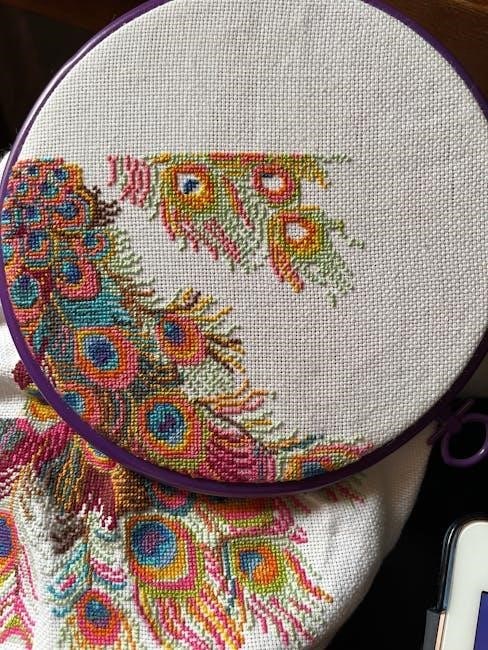
Leveling Up Your Crafting Skills
Leveling up your crafting skills is essential for unlocking advanced recipes and gear. Focus on optimal material use and plan your progression to craft efficiently.
1-400 Leveling Guide for Crafting Disciplines
Mastering a crafting discipline from 1 to 400 requires patience and strategy. Start by crafting low-level items using basic materials to quickly gain initial levels. As you progress, discover new recipes to unlock higher-tier crafting options. Focus on crafting items that provide the best experience-to-material ratio, ensuring efficient leveling. Use crafting boosters or supplements when available to accelerate your progress. Plan your material usage carefully to minimize waste. By following this structured approach, you can efficiently level up your chosen crafting discipline and unlock advanced recipes for powerful gear and items.
Optimal Use of Materials for Leveling
Efficient material usage is key to leveling your crafting skills without unnecessary costs. Prioritize crafting items that require fewer materials but offer high experience gains. Use bulk crafting for lower-level recipes to quickly accumulate experience. Always check the material-to-xp ratio before crafting, as some items yield better returns. Salvage unwanted gear to recover valuable materials and reduce waste. Additionally, consider using materials gathered from farming or purchased at optimal prices to maximize efficiency. By strategically managing your resources, you can level up your crafting discipline quickly and affordably.
Recipes and Item Crafting for Efficient Leveling
Choosing the right recipes is crucial for efficient leveling in Guild Wars 2 crafting. Focus on crafting items that offer the highest experience per material used, especially during the early stages. Lower-level recipes often provide better returns, allowing for rapid skill progression. Prioritize crafting items in bulk to maximize experience gains. Plan ahead by selecting recipes that align with your material inventory. Additionally, use the trading post to acquire materials at optimal prices and salvage unwanted items to recover valuable components. By strategically selecting and crafting recipes, you can efficiently level up your crafting skills and minimize resource waste.
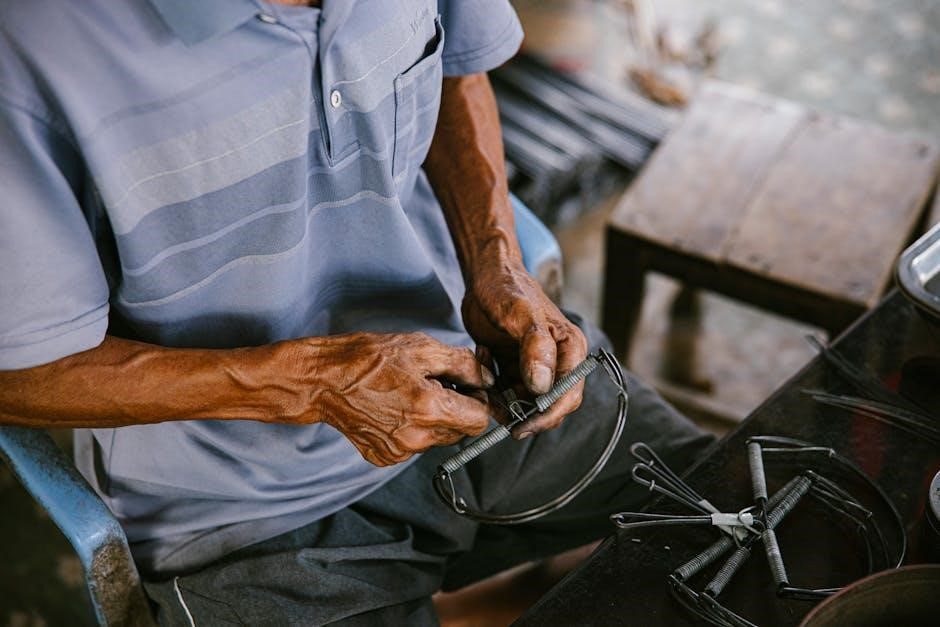
Crafting Gear and Equipment
Crafting gear and equipment in Guild Wars 2 allows players to create weapons, armor, and accessories tailored to their character’s needs, enhancing both performance and aesthetics.
Crafting Weapons
Crafting weapons in Guild Wars 2 enables players to create powerful arms tailored to their character’s needs. Whether it’s swords, axes, or pistols, each weapon requires specific materials. The Weaponsmith discipline is key for crafting melee weapons, while Engineers focus on ranged arms. Recipes often demand rare materials like metals and woods, which can be gathered or purchased. Crafting weapons allows for customization, such as stat combinations, making them ideal for specific playstyles. Higher-level weapons require advanced materials and mastery of crafting techniques. The crafting interface provides a list of recipes, guiding players through the creation process. Crafting weapons is both cost-effective and rewarding, enhancing gameplay significantly.
Crafting Armor
Crafting armor in Guild Wars 2 allows players to create protective gear for their characters, ensuring survival in combat. Disciplines like Armorsmith and Tailor specialize in crafting armor, with Armorsmiths focusing on heavy armor and Tailors on light armor. Materials such as metals, leather, and fabrics are essential. Crafting armor is cost-effective, enabling players to equip their characters with high-quality gear without spending gold. The crafting interface provides recipes tailored to your character’s level, making it easy to craft armor that suits their needs. As you level up, you unlock more advanced armor recipes, allowing for greater customization and stat optimization.
Crafting Trinkets and Accessories
Crafting trinkets and accessories in Guild Wars 2 is a vital part of enhancing your character’s stats and combat effectiveness. Disciplines like Jeweler and Artificer specialize in creating these items, which include rings, earrings, and amulets. Trinkets often require rare materials such as gems, metals, and cloth. Crafting accessories allows for customization, enabling players to tailor their gear to specific playstyles. Advanced techniques like infusing or upgrading trinkets can further enhance their stats. With the right materials and recipes, crafting trinkets and accessories can significantly boost your character’s power and versatility in the game.

Mastery and Specialization
Mastery and specialization in Guild Wars 2 crafting allow players to deepen their expertise, unlocking advanced techniques and exclusive recipes. These systems enable further customization and enhancement of crafting skills, making high-end items more accessible. Specialization options provide focused paths for crafting disciplines, while mastery tracks offer unique bonuses and capabilities, enhancing overall crafting efficiency and creativity. By investing in these, crafters can achieve superior results and stand out in the game. Explore these features to elevate your crafting journey and create exceptional gear tailored to your playstyle.
Mastery Tracks for Crafting
Mastery tracks in Guild Wars 2 crafting provide specialized progression paths, allowing players to enhance their crafting abilities. These tracks unlock new recipes, improve crafting efficiency, and grant access to high-end materials. Each track is tailored to specific crafting disciplines, offering unique bonuses and crafting capabilities. For example, some tracks focus on crafting legendary items, while others emphasize reducing material costs or improving item stats. Mastery tracks are essential for advanced crafters, enabling them to create exceptional gear and stay competitive. They also integrate with the game’s progression system, rewarding dedication and skill with exclusive crafting opportunities. This system ensures long-term engagement and customization for crafters of all levels.
Specialization Options for Crafting Disciplines
Specialization options in Guild Wars 2 crafting disciplines allow players to refine their expertise, enhancing specific aspects of their craft. Each discipline offers unique specializations that improve material efficiency, unlock rare recipes, or boost item stats. For example, an Artificer can specialize in creating potent consumables, while a Weaponsmith might focus on crafting high-damage weapons. These options enable crafters to tailor their skills to meet demand, optimize resources, and produce exceptional gear. Specializations are unlocked through mastery progression, providing a deeper layer of customization and versatility for advanced crafters. This system rewards dedication and allows players to excel in their chosen crafting paths.
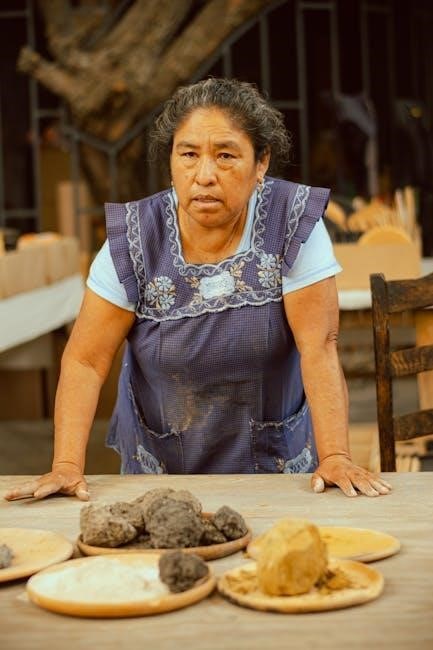
Materials and Resources
Guild Wars 2 crafting relies on various materials like ores, herbs, and leather. These resources are gathered from nodes, dropped by enemies, or purchased from merchants. Each crafting discipline requires specific materials to create items, ensuring a wide variety of resources are needed. Efficient use of materials is key to successful crafting and progression.
Common Materials Needed for Crafting
In Guild Wars 2, crafting requires a variety of materials, including ores, herbs, leather, and crafting materials. These are obtained through gathering, enemy drops, or purchases. Each crafting discipline has specific needs, such as metals for Weaponsmiths, fabric for Tailors, and gems for Jewelers. Common materials include Iron Ore, Wool Scrap, and Fine Steel. Players can also use the Trading Post to acquire materials efficiently. Managing these resources is crucial for leveling up and crafting effectively, ensuring you always have enough to progress your skills and create essential items.
Farming Materials Efficiently
Farming materials in Guild Wars 2 requires strategy to maximize efficiency. Focus on resource-rich zones like Kessex Hills for herbs or Plains of Ashford for metals. Use tools like a mining pick or logging axe to gather faster. Prioritize nodes aligned with your crafting discipline to avoid wasting time. Daily farming routines ensure a steady supply of materials. Track resource availability and rotate zones to minimize competition. Combine farming with gameplay activities like completing events or exploring to multitask effectively. This approach saves time and ensures you always have the materials needed for crafting and progression.
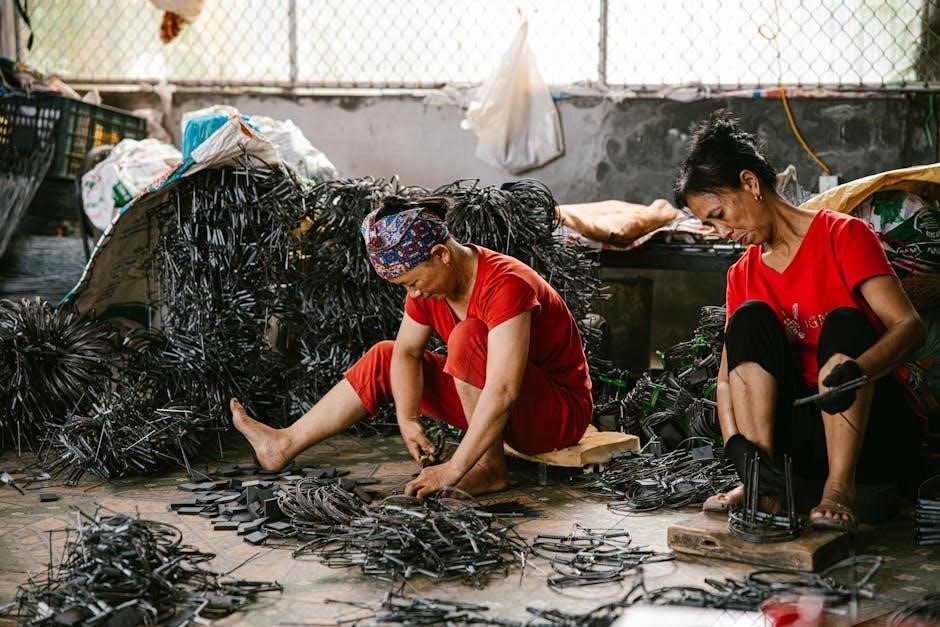
Mystic Forge and Crafting
The Mystic Forge is a powerful crafting system allowing players to combine materials into rare items. It’s ideal for creating unique gear and precursor items efficiently.
Understanding the Mystic Forge
The Mystic Forge is a powerful crafting system in Guild Wars 2, located in Lion’s Arch. It allows players to combine four materials to create unique items, including rare gear and precursor weapons. Unlike traditional crafting, the Mystic Forge uses a randomization system, making outcomes unpredictable but potentially rewarding. Players can use volatile magic to increase the chances of crafting high-value items. This system is ideal for experimenting with materials and creating legendary items like precursors for Exotic or Ascended gear. It’s a popular tool for both crafting and profit, offering endless possibilities for creative combinations.
Best Practices for Using the Mystic Forge
To maximize efficiency with the Mystic Forge, focus on using materials that align with your crafting goals. Prioritize volatile magic to increase the chance of high-value drops, especially for rare or legendary items. Experiment with diverse material combinations to uncover unique recipes. Always monitor the Trading Post for item demand to craft profitably. Consider testing combinations during off-peak hours when material prices are lower. Keep track of your attempts to refine strategies and avoid unnecessary waste. Remember, the Mystic Forge’s randomness requires patience and strategic planning to achieve desired outcomes effectively.
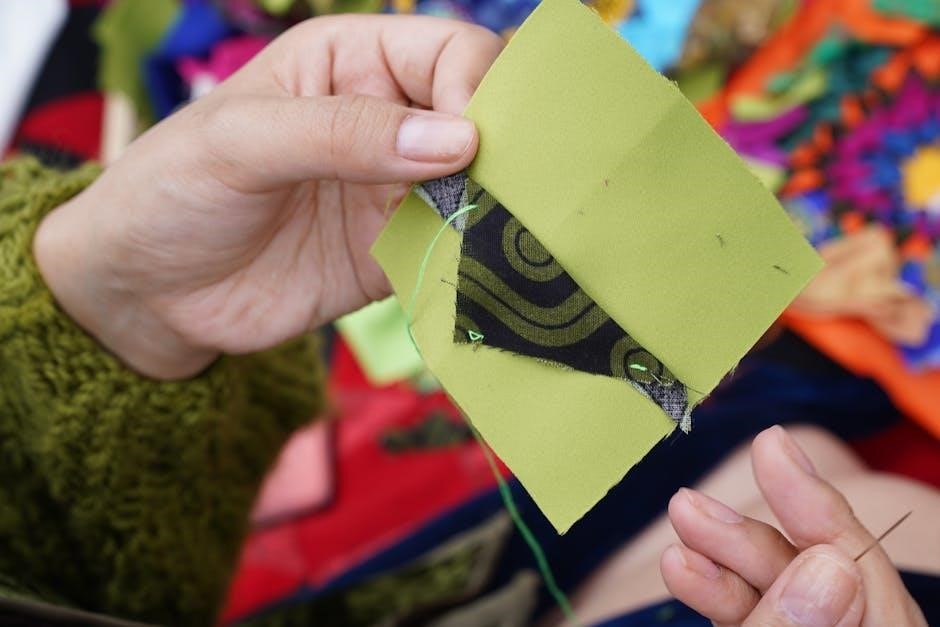
Earning Gold Through Crafting
Crafting is a powerful way to earn gold in Guild Wars 2 by creating high-demand items and selling them on the Trading Post. Focus on profitable recipes.
Profitable Crafting Recipes
Identifying profitable crafting recipes is key to earning gold in Guild Wars 2. Focus on high-demand items like ascended weapons, armor, and trinkets, which are sought after by players. Use the Trading Post to analyze current market trends and prices. Crafting recipes that utilize volatile materials can yield higher profits due to their rarity. Additionally, time-gated recipes, which can only be crafted during specific time windows, often fetch premium prices. Always consider material costs and ensure your crafted items meet current demand to maximize profitability in the game’s economy.
Using the Trading Post for Crafting Materials
The Trading Post is a vital tool for acquiring and selling crafting materials in Guild Wars 2. Use it to check current market prices, ensuring you buy materials at competitive rates. Look for bulk purchases to stockpile essential resources, such as ores, herbs, and leathers. Selling crafted items on the Trading Post allows you to profit from your creations. Setting up buy orders for rare or high-demand materials can save time and gold. Regularly monitoring the market helps you identify trends and capitalize on opportunities, making your crafting process more efficient and profitable.

Time-Gated Crafting
Time-gated crafting introduces unique challenges and opportunities, requiring players to plan crafting schedules around specific timers. This system adds depth to resource management and progression.
Understanding Time-Gated Recipes
Time-gated recipes in Guild Wars 2 are exclusive crafting options unlocked during specific events or seasons. These recipes often require rare materials and can only be crafted once per day. Players must plan carefully, as missing a window means waiting for the next reset. These recipes typically produce high-demand items, making them valuable for both personal use and profit on the Trading Post. Mastery of time-gated crafting requires tracking in-game events and managing resources efficiently to maximize output and profitability.
Strategies for Time-Gated Crafting
To excel at time-gated crafting, prioritize material preparation before reset times. Focus on high-demand items to maximize profit. Track in-game event calendars to anticipate recipe availability. Use crafting queues to manage multiple crafts efficiently. Experiment with different strategies to optimize your crafting schedule. Always keep a surplus of rare materials for unexpected opportunities. Stay updated with patch notes for new time-gated recipes. Collaborate with guildmates to share resources and expertise. Time-gated crafting requires patience and planning but offers significant rewards for those who master it. Balancing efficiency and resource management is key to success in this unique aspect of Guild Wars 2 crafting.
Legendary Crafting
Legendary crafting in Guild Wars 2 is a complex system for creating powerful, unique items like weapons and armor. It requires rare materials and precise recipes.
Legendary crafting in Guild Wars 2 is an advanced feature that allows players to create powerful, unique items such as weapons, armor, and accessories. These items are highly sought after due to their superior stats and exclusive appearances. Crafting legendary items is a challenging but rewarding process, requiring rare materials, specific recipes, and often a significant investment of time and gold. Unlike regular crafting, legendary crafting involves complex steps, including obtaining precursor items and unlocking mastery. It’s a system designed for experienced players looking to push their characters to the highest levels of power and customization.
Materials and Recipes for Legendary Items
Crafting legendary items in Guild Wars 2 requires rare and specific materials, often obtained through challenging content or intricate farming routes. Precursor items are a key component, serving as the foundation for most legendary weapons and armor. Players must gather materials like Blood of Nuhoch, Totems of the Mists, and other exotic components. Recipes for legendary items are typically unlocked through mastery tracks or purchased from special vendors. Crafting these items also involves the use of crafting stations or the Mystic Forge, with many recipes requiring multiple steps and significant time or gold investment. The process is complex but rewarding, yielding some of the game’s most powerful gear.
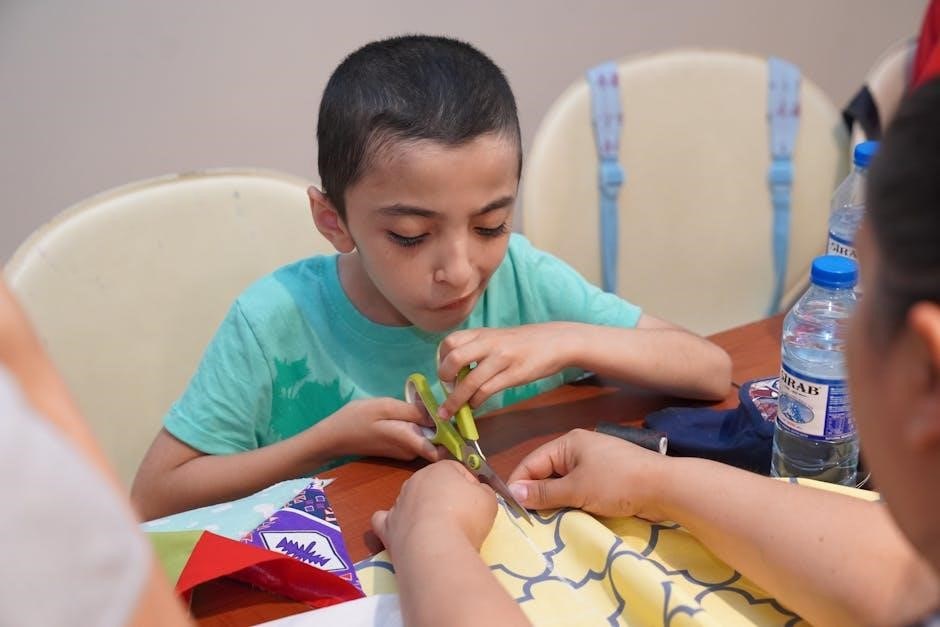
Advanced Crafting Tips
Optimize your crafting by balancing material costs and market demand. Use the Trading Post to check prices and craft items in demand for higher profits.
Optimizing Crafting for Efficiency
To optimize crafting efficiency, plan your material usage carefully and focus on high-demand items. Use the Trading Post to check material prices and craft during off-peak hours for better deals. Prioritize recipes that yield profitable results, and consider crafting in bulk to reduce time spent switching between disciplines. Additionally, use the Mystic Forge wisely to create rare items without wasting materials. Always craft items that align with current market trends to maximize profits. By streamlining your process and staying informed, you can craft efficiently and effectively in Guild Wars 2.
Advanced Crafting Strategies
Advanced crafting strategies involve mastering time-gated recipes, optimizing material usage, and leveraging the Mystic Forge effectively. Focus on crafting high-demand items during peak market hours to maximize profits. Experiment with combining rare materials to create unique gear. Utilize mastery tracks to unlock powerful crafting enhancements. Stay updated on market trends to adjust your crafting focus. For efficiency, craft in bulk and use surplus materials to create valuable components. By refining your techniques and adapting to market demands, you can elevate your crafting skills and achieve long-term success in Guild Wars 2.
Guild Wars 2 crafting offers a rewarding experience, blending creativity with strategic planning. By mastering disciplines, optimizing materials, and adapting to market demands, players can craft powerful gear, earn gold, and enhance their gameplay. The system’s depth, from basic crafting to legendary items, ensures endless opportunities for growth. Whether focusing on profit or personal achievement, crafting in Guild Wars 2 is a fulfilling journey that complements the game’s dynamic world. With continuous updates and a vibrant community, there’s always something new to explore, making crafting a cornerstone of the GW2 experience.

